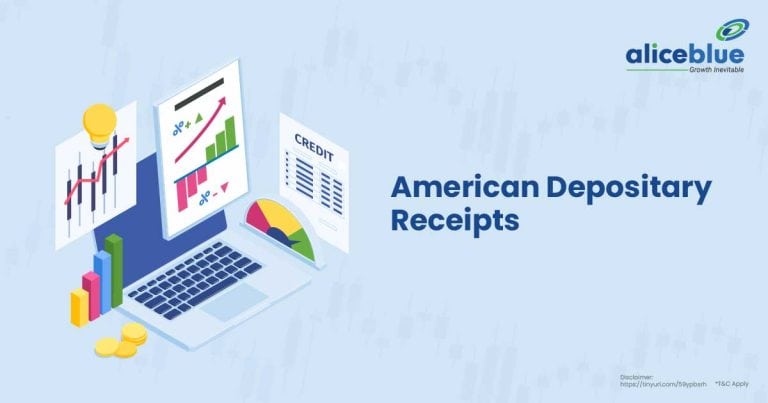Compounding in the stock market refers to earning returns on both initial investment and accumulated returns over time. This powerful wealth-building concept allows investors to grow their money exponentially as profits are reinvested, generating additional returns through a snowball effect.
Table of Contents
What Is Compounding In The Stock Market?
Compounding in the stock market is a wealth-building mechanism where you earn returns not only on your initial investment but also on the accumulated returns over time. This exponential growth occurs when profits are reinvested, creating a snowball effect on wealth accumulation.
Regular reinvestment of dividends and capital gains helps accelerate wealth creation. The longer the investment period, the more powerful the compounding effect becomes due to returns generating additional returns.
This financial concept requires patience and discipline, as the true benefits of compounding emerge over longer time horizons. Albert Einstein reportedly called compound interest the eighth wonder of the world.

Compounding In Stock Market Examples
If you invest ₹10,000 monthly in stocks earning 12% annual returns, after 20 years your investment of ₹24 lakhs could grow to approximately ₹1 crore through compounding.
The same investment without compounding (not reinvesting returns) would yield significantly less. Early investors benefit more as their money has more time to compound and generate wealth.
Real examples include long-term investors in blue-chip stocks who’ve seen initial investments multiply many times through dividend reinvestment and price appreciation over decades.
How Compounding Works In Stocks?
Stock market compounding works through reinvestment of both capital gains and dividends. When you reinvest dividends to buy more shares, these additional shares generate their own returns and dividends.
Price appreciation compounds when profits remain invested, allowing your capital to grow on an increasingly larger base. Regular investment through SIPs enhances compounding benefits by averaging out market fluctuations.
The process creates a virtuous cycle where earnings generate more earnings, accelerating wealth creation over time. This effect becomes more powerful with higher returns and longer investment periods.
What is the Formula for Compounding?
The compound interest formula is A = P(1 + r)^n, where A is the final amount, P is the principal, r is the annual interest rate, and n is the number of years. This formula helps calculate the future value of investments with compounding.
For regular investments like SIPs, the formula becomes more complex but follows the same principle. Online calculators help estimate returns considering regular contributions and varying market returns.
Understanding this formula helps investors appreciate how small differences in return rates or investment periods can significantly impact final wealth accumulation through compounding.
What Is the Power of Compounding in Mutual Funds?
Mutual funds showcase compounding power through systematic reinvestment of dividends and capital gains. Growth options automatically reinvest profits, while dividend reinvestment plans convert distributions into additional units.
Professional management and diversification in mutual funds help maintain consistent returns, enhancing compounding benefits. Regular SIP investments combined with compounding can help achieve long-term financial goals.
The impact is particularly visible in equity mutual funds, where higher potential returns over longer periods can lead to substantial wealth creation through compounding.
Benefits Of Compounding
The main benefit of compounding is that it allows your investments to grow exponentially over time by earning returns on both the initial principal and the accumulated interest from previous periods, significantly enhancing wealth growth potential with long-term commitment.
- Exponential Growth: Compounding accelerates the growth of your investments by earning returns on both the initial principal and the interest accumulated from prior periods, increasing the total amount more rapidly.
- Enhanced Returns: Each compounding period adds to the investment base, which means future interest is generated from a continually increasing amount, maximizing potential returns over time.
- Long-term Benefits: The longer your investment period, the greater the effect of compounding, as the reinvested earnings generate their own earnings, creating significant wealth over decades.
- Encourages Saving: The potential for higher returns through compounding motivates investors to save more and start investing early, benefiting from the cumulative growth effect.
Strategies for Maximizing the Power of Compounding
Start investing early to give your money more time to compound. Choose growth options in investments rather than taking regular withdrawals. Maintain discipline in regular investments through market cycles.
Reinvest all dividends and capital gains rather than spending them. Focus on quality investments that can deliver consistent returns over long periods. Avoid premature withdrawals that break the compounding cycle.
Diversify investments across asset classes while maintaining a long-term perspective. Use tax-efficient investment options to maximize the amount available for compounding. Consider the power of compounding while setting financial goals.
To understand the topic and get more information, please read the related stock market articles below.
| How Does The Stock Market Work In India? |
| Trailing Stop Loss |
| Masala Bonds |
| Cash Future Arbitrage Strategy |
| Types Of Arbitrage |
| Flag & Pole Pattern |
| Benefits Of Dematerialisation |
| Share Dilution |
| What Is Doji |
Compounding In Stock Market – Quick Summary
- Compounding in the stock market enhances wealth by reinvesting returns, leading to exponential growth over time. This effect, known as the snowball effect, maximizes wealth accumulation through disciplined, long-term investment strategies.
- Investing ₹10,000 monthly at a 12% annual return could yield ₹1 crore in 20 years through compounding. Without reinvestment, returns would be much lower, demonstrating the significant benefit of early and continuous investment in compounding scenarios.
- Stock market compounding involves reinvesting capital gains and dividends, which buy more shares that in turn generate returns. This reinvestment creates a cycle of earnings generating more earnings and significantly enhancing wealth over long periods.
- The compound interest formula A=P(1+r)^n calculates the future value of investments, considering reinvestment and compounding. Adjustments for regular investments like SIPs are complex but rooted in this principle, underlining how small changes significantly affect wealth.
- Mutual funds exemplify compounding through the reinvestment of dividends and gains into more shares. This strategy, combined with professional management, maximizes returns over time, particularly evident in equity funds with higher return potential.
- The main benefit of compounding is its potential to grow investments exponentially over time, leveraging returns on both principal and accumulated earnings to significantly boost wealth with long-term commitment.
- Maximize compounding by starting investments early, opting for growth over withdrawals, and maintaining regular contributions. Reinvest all earnings, focus on quality assets, diversify wisely, use tax-efficient vehicles, and consider compounding’s impact on financial planning.
- Open a free demat account with Alice Blue in 15 minutes today! Invest in Stocks, Mutual Funds, Bonds & IPOs for Free. Also, trade at just ₹ 15/order and save 33.33% brokerage on every order.

Compounding Meaning – FAQs
Compounding in the stock market occurs when returns are reinvested to generate additional returns, creating exponential growth over time. Both initial capital and accumulated profits work together to accelerate wealth creation through this snowball effect.
Compounding is calculated using the formula A = P(1 + r)^n, where A is the final amount, P is the principal, r is the annual return rate, and n is the number of years. For regular investments, additional formulas consider periodic contributions.
In stocks, compounding works through reinvestment of dividends and capital gains. When profits are reinvested, they generate their own returns, creating a cycle of exponential growth. Longer investment periods maximize this effect.
The main disadvantages include slower initial growth, a requirement for a long-term commitment, the impact of missed investments, vulnerability to high inflation, and potential tax implications on reinvested earnings. Early withdrawals can significantly reduce compounding benefits.
Yes, compounding works effectively in the stock market through reinvestment of dividends and capital gains. However, success depends on consistent investment discipline, quality stock selection, and long-term investment horizon.
Stock market returns don’t compound daily like bank interest. Compounding occurs through price appreciation and dividend reinvestment, which happen at varying intervals based on market movements and company dividend policies.
Yes, SIPs benefit from compounding as regular investments grow through market returns and reinvestment. Each installment generates its own returns, while earlier investments compound over longer periods, enhancing overall returns.
We hope that you are clear about the topic. But there is more to learn and explore when it comes to the stock market, commodity and hence we bring you the important topics and areas that you should know:
Disclaimer: The above article is written for educational purposes and the companies’ data mentioned in the article may change with respect to time. The securities quoted are exemplary and are not recommendatory.









